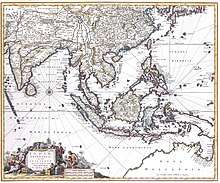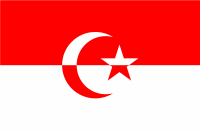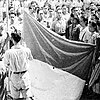This article needs additional citations for verification .(June 2011) |
| Darul Islam/ Islamic Armed Forces of Indonesia | |
|---|---|
| Darul Islam/Tentara Islam Indonesia دار الإسلام إندونيسيا Dārul Islām Indūnisiyyā | |
| Leaders |
|
| Dates of operation | 1949–1962 2022–present (underground Movement) [1] [2] [3] |
| Active regions |
|
| Ideology | Islamism |
| Status | Banned and designated as a terrorist organization by Indonesia [4] |
| Size | 1,400+ (2022) [5] |
| Opponents | Indonesia |
| Battles and wars | Darul Islam rebellion (1949–1962) |
| History of Indonesia |
|---|
 |
| Timeline |
Darul Islam (lit. meaning House of Islam ), [6] also known as Darul Islam/Islamic Armed Forces of Indonesia (Indonesian : Darul Islam/Tentara Islam Indonesia, DI/TII), is an Islamist group whose goal is to fight for the establishment of an Islamic state in Indonesia. It was established in 1942 by a group of Muslim militias, coordinated by the Muslim politician, Sekarmadji Maridjan Kartosoewirjo. The group recognises only Shari'a as the valid source of law. The movement has produced splinters and offshoots that range from Jemaah Islamiyah to non-violent religious groups.





